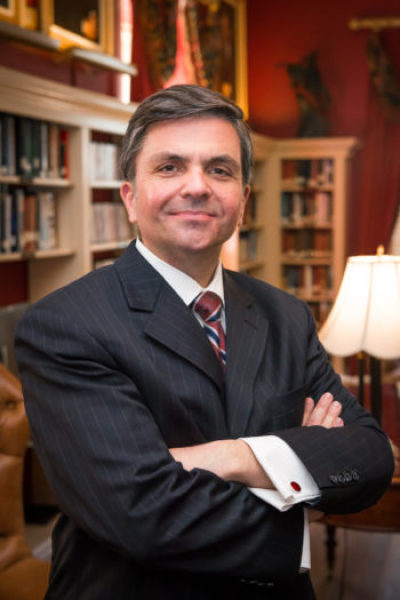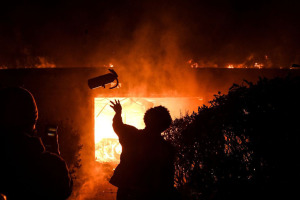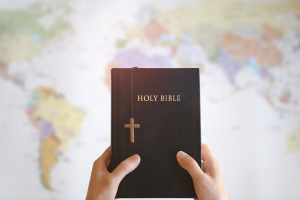Churches, Cuba and communism

A July 23 New York Times full page ad implored: “Let Cuba Live!”
Readers may have expected the ad to offer solidarity to anti-regime protests and to call for an end to Cuba’s 62-year-old communist dictatorship with one-party rule enforced by a police state.
But no, the ad urged removal of U.S. sanctions on Cuba, which it claimed are the real cause of Cuban suffering, repeating the claims of Cuba’s dictatorship. There was no mention of human rights or the appeals of protesters.
Signers to the ad were predictable: Jane Fonda, Daniel Ellsberg, Susan Sarandon, Noam Chomsky, Oliver Stone. Jeremy Corbyn. CODEPINK, and Black Lives Matters Global Network. Regarding the latter, it should be noted that black Cubans have prominently protested against the regime and suffered consequences for it.
Also signing was Jim Winkler, chief of the National Council of Churches (NCC), which includes over 30 mainline Protestant, historic black and Eastern Orthodox communions, although it is mainly associated with liberal mainline Protestants. Winkler formerly headed the United Methodist General Board of Church and Society on Capitol Hill in Washington, D.C.
Similarly, a Presbyterian Church (USA) official on July 23 penned his own letter blaming the U.S. for Cuba’s troubles, while silent about the dictatorship, addressed to “Cuban siblings in Christ:” “We recognize and confess the part our country plays in the suffering of the Cuban people.” Perhaps these Cuban siblings were befuddled by the silence about the more proximate cause of their sufferings.
There is no surprise here. The NCC, United Methodist and mainline Protestant agencies have for 50 years apologized for Cuba’s dictatorship. During the 1970s and 1980s mainline agencies were enmeshed in Liberation Theology and saw Castro’s revolution supposedly on behalf of the poor and oppressed as an expression of God’s Kingdom. They hailed Cuba’s supposedly high-quality free healthcare while ignoring Castro’s totalitarianism, which included persecution of religion, no free speech, and incarceration if not death for tens of thousands of dissenters, not to mention the poverty enforced by corrupt state ownership of property.
These churches, without informed consent by their memberships, also hailed Cuban proxies like the Sandinista dictatorship in Nicaragua and the FALN guerrillas in El Salvador, along with other Marxist “liberation” movements backed by the Soviet Union.
It’s a sad history. U.S. church delegations commonly visited Havana, as in 1991, met with Castro, and said little to nothing about human rights abuses. Sometimes they hosted Castro in New York, as in 1996, when Castro told the NCC: “We see in you and your actions the expression of the best values and intentions of the American people,” and, “We love you very specially, and always welcome you to our country. You are teaching us to be Christians.”
Then NCC chief Joan Brown Campbell in 1999 joined Castro to address a regime rally of 10,000 in Havana, apologizing for U.S. policies. In 2000, Riverside Church, cathedral of liberal Protestantism, hosted Castro in its pulpit in 2000 as hundreds in the pews cheered and waved Cuban flags in what might be called Cuban Communist Christian nationalism.
With other clerics, Campbell hailed Castro for, among other accomplishments, orchestrating the return of little Elian Gonzalez, in which Campbell played a prominent role. Castro of course denounced America’s “criminal embargo” as the real “violation of human rights.” And he thanked the NCC for its solidarity. (Watch amazing video.) (Here’s text of his speech.)
In 2015, Campbell, by then retired from the NCC, met with Castro in Havana a final time. Cuban media hailed her for having “shown many times her solidarity with Cuba.” The following year she joined Jesse Jackson in Havana to speak at an ecumenical memorial service for Castro.
Campbell and other U.S. church officials who collaborated with Castro and other regime officials no doubt would argue that their relationships with that regime, and near public silence about its human rights abuses, facilitated liberalization of anti-regime policies in Cuba. Churches now have more freedom, and by some accounts there is Christian revival in Cuba. It’s safe to say that the Gospel is now more popular in Cuba than communism.
But U.S. church groups that continue their silence about the dictatorship have even less excuse now that Cuban churches are speaking in solidarity with calls for more freedom. Here’s what Cuba’s Methodist Church recently said:
"We reject the repression exercised against the people who were protesting. Confrontation and violence only lead to death, mourning, and insecurity. Refusing to listen to the people’s voice, those who were peacefully making their claims, equals to closing the only door to understanding and the power to live in peace.
We declare that the people must have freedom of speech. The people’s voice must be heard when they claim for their rights. In these few years, the government has been proclaiming that the Cuban nation must be “inclusive”, rejecting the “exclusion” of “minority groups”; therefore, the fact that an individual does not agree with the political system does not make them antisocial or delinquent. They must receive the same right as other groups in society. Because Cuba ought to be a free and sovereign country, where all their children are respected, both those who support the revolution, as those who do not sympathize with the sociopolitical system."
Maybe U.S.-based mainline Protestant groups could at least echo U.S. Catholic bishops:
"As protests continue in Cuba and among the diaspora in the United States, we would like to express our solidarity, as well as that of our brother bishops in the United States, with our brothers in the Cuban episcopate, and with all men and women of goodwill in Cuba."
It’s true that U.S. mainline Protestant groups like the NCC are much diminished and no longer influential. Their leaders never spoke for most church members on political issues like Cuba. But their tragic history of abetting Cuban oppression is a black mark on Christian political witness. They now have the opportunity, while Cuba’s dictatorship still lamentably stands, to rectify that tragic history and offer genuine solidarity to Cubans seeking the same liberties that Americans too often take for granted.
Originally published at Juicy Ecumenism.
Mark Tooley became president of the Institute on Religion and Democracy (IRD) in 2009. He joined IRD in 1994 to found its United Methodist committee (UMAction). He is also editor of IRD’s foreign policy and national security journal, Providence.



























